

others
Pound Sterling rallies as BoE prepares for a fresh interest rate hike – Crypto News
- Pound Sterling jumps to near 1.2700, supported by a risk-on mood.
- UK housing demand drops sharply due to rising mortgage rates.
- Investors hope that policy divergence between the Fed and BoE will vanish this month.
The Pound Sterling (GBP) extends recovery swiftly as a higher risk appetite among market participants continues to improve the appeal for risk-sensitive assets. The GBP/USD pair remains well-supported as investors hope that the policy divergence between the Federal Reserve (Fed) and the Bank of England (BoE) will vanish this year. More interest rate hikes from the BoE are in the pipeline as the core Consumer Price Index (CPI) data remains sticky near its all-time peak.
In the battle against persistent inflation, the UK’s factory activities and its property sector have been major victims. British firms continue to operate at lower capacity due to a poor demand outlook, and higher mortgage rates have forced homebuyers to postpone their purchases. The BoE’s Broadbent warned that inflation will not fade as quickly as it emerged despite soft energy and fuel prices.
Daily Digest Market Movers: Pound Sterling recovers strongly on soft US labor demand
- Pound Sterling gathers strength for a decisive break above the immediate resistance of 1.2650 amid an upbeat market mood.
- The asset secures an auction above 1.2600 as investors hope that the Fed-BoE policy divergence will vanish since the former is expected to keep interest rates steady.
- The BoE doesn’t have the comfort of pausing the policy-tightening spell in the current scenario as evidence that UK core inflation will loosen up is absent.
- UK core inflation is nominally lower at 6.9% from its all-time peak of 7.1% despite BoE raising interest rates to 5.25%.
- UK PM Rishi Sunak’s promise of halving inflation by year-end is at stake, which would keep the central bank on the policy-tightening path.
- The major catalyst behind persistent core inflation is the strong wage growth in the British economy. The UK’s jobless rate rose to 4.2% in July, but wage growth remained robust, which indicated that firms were heavily spending to retain talent.
- This week, BoE Deputy Governor Ben Broadbent said that inflation will not fade as quickly as it emerged despite soft energy and fuel prices. He warned that interest rates will remain higher for a longer period.
- BoE’s battle against stubborn inflation has come with plenty of consequences for the UK’s economic outlook. Repercussions of higher interest rates have widened to the property sector.
- UK property website Zoopla forecasted on Wednesday that new home purchases in 2023 are on course to decline by 21% to their lowest level since 2012 as homebuyers postpone their purchases due to higher mortgage rates, Reuters reported.
- An influential group of UK MPs stated that they must take a tougher stance on China over its severe human rights abuses and help Taiwan build its defenses to deter a potential attack from Beijing, reported by The Guardian.
- Major strength in the Pound Sterling on Wednesday came from bullish market sentiment, which was propelled by softer United States JOLTS Job Openings for July.
- US Bureau of Labor Statistics reported on Tuesday that employers invited applications for 8.827M vacancies vs. June’s reading of 9.165M. Market participants anticipated higher job openings at 9.465M.
- A significant drop in labor demand boosts hopes of ‘higher for longer’ interest rates by the Federal Reserve (Fed) and challenges expectations of further policy tightening this year.
- Meanwhile, US ADP’s Employment Change data for August landed at 177K, lower than estimates and the former release of 195K and 324K respectively.
- The last four ADP Employment reports were significantly above market consensus. This time, fresh payrolls were significantly lower due to higher interest rates by the Fed.
- Later this week, Nonfarm Payrolls (NFP) and ISM Manufacturing PMI will be keenly watched.
Technical Analysis: Pound Sterling tests 1.2700
Pound Sterling strives for a confident stabilization above the round-level resistance of 1.2700, capitalizing on bullish market sentiment. The Cable oscillates in the previous day’s range ahead of crucial US economic data, which will guide further direction. The broader trend is still weak as the 20 and 50-day Exponential Moving Averages (EMAs) have already delivered a bearish crossover.
BoE FAQs
The Bank of England (BoE) decides monetary policy for the United Kingdom. Its primary goal is to achieve ‘price stability’, or a steady inflation rate of 2%. Its tool for achieving this is via the adjustment of base lending rates. The BoE sets the rate at which it lends to commercial banks and banks lend to each other, determining the level of interest rates in the economy overall. This also impacts the value of the Pound Sterling (GBP).
When inflation is above the Bank of England’s target it responds by raising interest rates, making it more expensive for people and businesses to access credit. This is positive for the Pound Sterling because higher interest rates make the UK a more attractive place for global investors to park their money. When inflation falls below target, it is a sign economic growth is slowing, and the BoE will consider lowering interest rates to cheapen credit in the hope businesses will borrow to invest in growth-generating projects – a negative for the Pound Sterling.
In extreme situations, the Bank of England can enact a policy called Quantitative Easing (QE). QE is the process by which the BoE substantially increases the flow of credit in a stuck financial system. QE is a last resort policy when lowering interest rates will not achieve the necessary result. The process of QE involves the BoE printing money to buy assets – usually government or AAA-rated corporate bonds – from banks and other financial institutions. QE usually results in a weaker Pound Sterling.
Quantitative tightening (QT) is the reverse of QE, enacted when the economy is strengthening and inflation starts rising. Whilst in QE the Bank of England (BoE) purchases government and corporate bonds from financial institutions to encourage them to lend; in QT, the BoE stops buying more bonds, and stops reinvesting the principal maturing on the bonds it already holds. It is usually positive for the Pound Sterling.
-
others1 week ago
Japan Foreign Investment in Japan Stocks up to ¥528.3B in December 12 from previous ¥96.8B – Crypto News
-

 Technology1 week ago
Technology1 week agoOnePlus 15R vs Pixel 9a: Which phone is the best buy under ₹50,000? Display, camera, processor and more compared – Crypto News
-

 Blockchain5 days ago
Blockchain5 days agoThis Week in Stablecoins: Winning the Back Office – Crypto News
-

 Technology5 days ago
Technology5 days agoApple iPhone 16 price drops to ₹40,990 in Croma’s Cromtastic December Sale: How the deal works – Crypto News
-

 Technology5 days ago
Technology5 days agoApple iPhone 16 price drops to ₹40,990 in Croma’s Cromtastic December Sale: How the deal works – Crypto News
-

 Blockchain1 week ago
Blockchain1 week agoJPMorgan Prepares to Launch First Tokenized Money Market Fund – Crypto News
-
Business5 days ago
XRP Holders Eye ‘Institutional Grade Yield’ as Ripple Engineer Details Upcoming XRPL Lending Protocol – Crypto News
-

 others6 days ago
others6 days agoAustralian Dollar loses as US Dollar advances before Michigan Sentiment Index – Crypto News
-
Business5 days ago
DOGEBALL Presale: A Boost to Bring P2E Games Back into the Spotlight – Crypto News
-

 Technology5 days ago
Technology5 days agoApple iPhone 16 price drops to ₹40,990 in Croma’s Cromtastic December Sale: How the deal works – Crypto News
-
others5 days ago
XRP Holders Eye ‘Institutional Grade Yield’ as Ripple Engineer Details Upcoming XRPL Lending Protocol – Crypto News
-
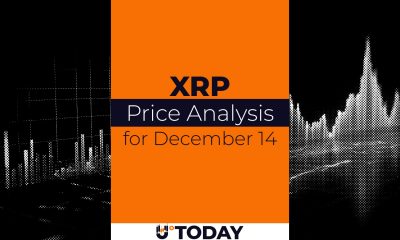
 Cryptocurrency1 week ago
Cryptocurrency1 week agoXRP Price Analysis for December 14 – Crypto News
-

 Blockchain1 week ago
Blockchain1 week agoBlockchain’s Institutional Future Is Private and Permissioned – Crypto News
-
Business5 days ago
125 Crypto Firms Mount Unified Defense as Banks Push to Block Stablecoin Rewards – Crypto News
-
Technology5 days ago
Michael Saylor Sparks Debate Over Bitcoin’s Quantum Risk as Bitcoiners Dismiss It as ‘FUD’ – Crypto News
-

 Blockchain4 days ago
Blockchain4 days agoLitecoin Follows Bitcoin’s Momentum, But Resistance Looms At $79.60 – Crypto News
-

 Cryptocurrency1 week ago
Cryptocurrency1 week agoCapital gets selective – Blockworks – Crypto News
-
others1 week ago
Low-Fee vs. High-Leverage – How to Choose the Optimal Exchange for Your Trading Strategy? – Crypto News
-
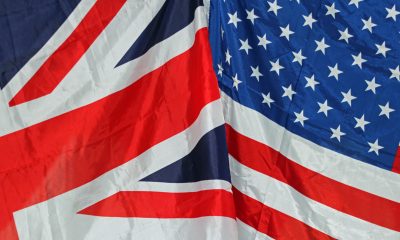
 Technology1 week ago
Technology1 week agoUS Puts Tech Deal With UK on Hold – Crypto News
-

 Blockchain1 week ago
Blockchain1 week agoCiti Says Identity Is the New Gatekeeper for Financial Blockchains – Crypto News
-
Metaverse1 week ago
How companies are using AI to squeeze more from your wallet – Crypto News
-
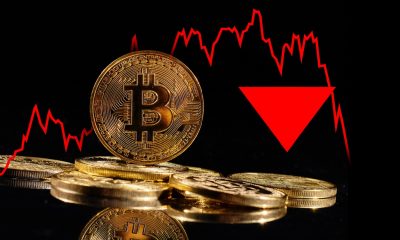
 Blockchain1 week ago
Blockchain1 week agoBitcoin on Track For 4th Annual Decline Despite Crypto Adoption – Crypto News
-
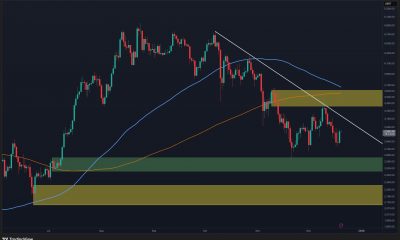
 Cryptocurrency5 days ago
Cryptocurrency5 days agoIs ETH Ready for Sustained Recovery or Another Rejection Looms? – Crypto News
-

 Blockchain4 days ago
Blockchain4 days agoCrypto Market Sentiment Not Fearful Enough For Bottom: Santiment – Crypto News
-

 Blockchain4 days ago
Blockchain4 days agoCrypto Market Sentiment Not Fearful Enough For Bottom: Santiment – Crypto News
-

 Blockchain4 days ago
Blockchain4 days agoLitecoin Follows Bitcoin’s Momentum, But Resistance Looms At $79.60 – Crypto News
-

 Technology4 days ago
Technology4 days agoApple iPhone 15 price drops to ₹36,490 in Croma Cromtastic December Sale: How the deal works – Crypto News
-

 Metaverse1 week ago
Metaverse1 week agoSpaceX has two aces up its sleeve in the battle to put AI data centers in space – Crypto News
-
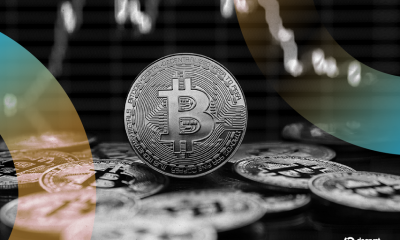
 Cryptocurrency1 week ago
Cryptocurrency1 week agoBitcoin and Ethereum Wobble as US Reports Highest Unemployment Rate Since 2021 – Crypto News
-

 others1 week ago
others1 week agoJapanese Yen strengthens as BoJ rate hike speculation grows – Crypto News
-

 Cryptocurrency7 days ago
Cryptocurrency7 days agoWhy quantum computing is becoming a real concern for Bitcoin – Crypto News
-

 Blockchain6 days ago
Blockchain6 days agoMastercard, BlackRock Join Middle East-Focused Blockchain Effort – Crypto News
-

 Technology6 days ago
Technology6 days agoFrom chibi to plushie: 7 Must-try AI portraits you can create with GPT Image 1.5 – Crypto News
-

 Technology6 days ago
Technology6 days agoFrom chibi to plushie: 7 Must-try AI portraits you can create with GPT Image 1.5 – Crypto News
-
Business6 days ago
Breaking: VanEck Discloses Fees and Staking Details for its Avalanche ETF – Crypto News
-
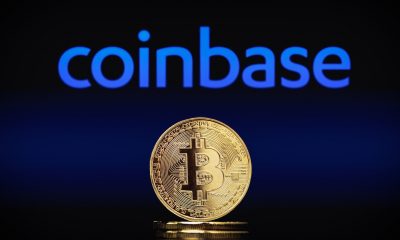
 Blockchain5 days ago
Blockchain5 days agoCoinbase Launches Service to Help Businesses Create Tokens – Crypto News
-

 Cryptocurrency5 days ago
Cryptocurrency5 days agoBTC at $143K, ETH above $4000: Citi issues bullish price forecasts as crypto market continues to struggle – Crypto News
-
Business5 days ago
Bitcoin Price Alarming Pattern Points to a Dip to $80k as $2.7b Options Expires Today – Crypto News
-

 Metaverse5 days ago
Metaverse5 days agoAI Tool of the Week: Transform marketing concepts instantly. – Crypto News
-
Business5 days ago
Ethereum Faces Selling Pressure as BitMEX Co-Founder Rotates $2M Into DeFi Tokens – Crypto News
-

 others5 days ago
others5 days agoElliott Wave, seasonality, and cycles indicate more upside – Crypto News
-

 others5 days ago
others5 days agoElliott Wave, seasonality, and cycles indicate more upside – Crypto News
-

 Blockchain5 days ago
Blockchain5 days agoBlockchain and AI Vibe-Coding To Dethrone Amazon Web Servies: Crypto exec – Crypto News
-

 Blockchain4 days ago
Blockchain4 days agoBanks Need XRP To Be Pricier—Here’s Why A Finance Expert Says So – Crypto News
-
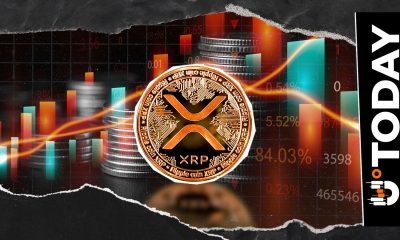
 Cryptocurrency4 days ago
Cryptocurrency4 days agoXRP Could Add Zero If Rally Is Short-Lived – Crypto News
-

 Technology3 days ago
Technology3 days agoSamsung Galaxy S25 Ultra price drops to ₹69,999 at Croma Cromtastic December Sale? Here’s how the deal works – Crypto News
-

 others1 week ago
others1 week agoPound Sterling trades calmly at start of UK data-packed, BoE week – Crypto News
-
Business1 week ago
World’s Highest IQ Holder Projects $100 XRP in 5 Years, What Does He Know? – Crypto News
-
Cryptocurrency1 week ago
XRP News: Ripple’s RLUSD Eyes Wider Adoption as Stablecoin Expands to Coinbase’s L2 Base – Crypto News
-

 Blockchain1 week ago
Blockchain1 week agoHow Blockchain Works – Crypto News










